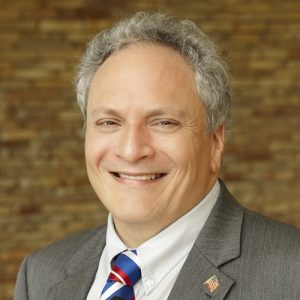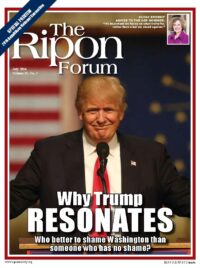
The sword of Damocles hangs over NATO: What role does the alliance have in the 21st century? Events in Georgia, Ukraine and the Baltic demonstrate Russian use of salami tactics (slicing bits and pieces of influence and territory) has accelerated. NATO must create relevancy and power if it is not only to survive, but to thrive.
Media coverage about Europe has been dominated by the European Union and Brexit. However, it is highly unlikely that the fate of the EU is tied to the fate of NATO.
Readers should be reminded that NATO served as a bulwark against communism and the Soviet threat during the Cold War and serves as a guarantee for peace in Europe and abroad today. In an age where the American people are less likely to endorse unilateral American action, NATO can serve as the best conduit for American national security and by being a united front for the democratic West. NATO has been left to stagnate as events in the Middle East, issues of tactical counterterrorism and the Obama administration’s “pivot to Asia” have dominated the few media centers and policymakers still devoted to foreign affairs. The alliance increasingly runs the risk of what former Secretary Robert Gates called a “two-tiered alliance”: a minority of NATO partners who can engage in serious 21st century combat operations and the majority whose contributions are likely to be more symbolic or humanitarian. Only 5 percent of our European partners have the ability to deploy outside of their borders and only four of the 28 members spend the required 2 percent of gross domestic product on defense.
In an age where the American people are less likely to endorse unilateral American action, NATO can serve as the best conduit for American national security and by being a united front for the democratic West.
Where does this leave the alliance in the 21st century? Like all organic healthy bodies it must adapt and grow on its foundations. There needs to be a streamlined approach that blends old and new into a new, vibrant, proactive alliance. The defensive nature of the alliance was dictated by the rules of the Cold War. A shield of defense must now be transformed into a sword of offense.
The first issue arises out of the democratic electorates that NATO serves. These populations need to be invested in NATO as a bulwark of Western civilization, not merely a technocratic treaty system. NATO, with American leadership, must promote a message to the electorate beyond an attack upon one is an attack upon all. It must create a narrative that describes the alliance in terms of protecting and enhancing democratic civilization and human rights.
Second, United States leadership is not only critical, but fundamental. This means that America is always out in front of policy and practice. Our European and Canadian partners are unwilling to go to the mat without us. The tired sentiment that the “Europeans should understand their own interests in a stable world order” was never accurate. America is the indispensable partner and leader of the alliance and should be bold in its leadership – leading from the front.
Third, NATO expansion eastward has happened. There is no turning back, and, as a result, the United States and NATO are in a position that they must defend Eastern Europe and the Baltic. Putin’s recent actions serve as stark reminder that he is willing to use whatever tactics are necessary to achieve Russian expansion into the so-called “near abroad.” NATO forward basing into these new partners is the only thing that will deter war. The debates over NATO expansion into existing partners is over, and is now counterproductive.
Fourth, NATO partners must keep pace with modern military and technological innovation and training. The alliance must be truly integrated so there is no problem of joint, large military operations. The 2011 operations in Libya again exposed the dependency on the United States. Afghanistan is even more telling. Just as the United States must lead from the front, so do the Europeans need to keep pace through their currency, soldiers and commitments. NATO does not have to be as strong as its weakest link, but it does have to be as strong as the middle core. This is especially a problem when looking at power projection and overseas deployment.
United States leadership is not only critical, but fundamental.
Fifth, NATO must have a clear and streamlined plan and organization for integrating allies outside of NATO to ensure western diplomatic and military success. NATO should work toward a real resurrection of ANZUS as well as greater coordination with Japan, Taiwan, and South Korea.
Sixth, NATO integration with Russia was always a fantasy. Russia seeks strategic dominance, and will attempt to manipulate Western division for its own ends. A discussion of NATO partnership with Russia is not only unrealistic in the extreme, it also creates a fiction that Russian interests and NATO interests coincide. As a matter of fact, they neither correspond regionally or globally. This fantasy brought us the events in Georgia in 2008 and now Ukraine and the Baltic.
Seventh, NATO must adopt a cohesive counter-terrorism plan that is both united and aggressive. NATO countries must recognize that the enemy is jihadism and that unless their power centers are removed outside of Europe, in places like Iraq and Syria, alliance countries will continue to be reactive and devastated.
Eighth, and most importantly, NATO needs a geostrategic mission that does not react to one crisis after another. This mission must meld the grand strategies of the nation states that comprise it, headed by the United States. This mission must combine the promotion of democratic civilization, human rights and realist interests. NATO’s shield that surrounds Europe, the United States and Canada is a given; the sword that collectively deals with tyranny, genocide and illegal conquest would be the goal. This will not only deter war and atrocities, it will unite the West and relieve the singular burden from one nation, or a small group of them.
Concurrent with this is the need for NATO to develop and enact joint strategies for assisting democratic forms of government that replace tyrannies, since it is no good to merely defeat tyrants. This will require the ability to create security, civil society and market economies in those same countries. Fewer tyrannies like those in Iran, Syria and North Korea are likely to believe that state sponsored terrorism, ethnic cleansing or using weapons of mass destruction are good ideas if they fear a massive, collective Western response spearheaded by the United States. Great power actors like Russia and China will be constrained within their own borders if they see demonstrations of Western unity, in league with other democratic allies like Japan, South Korea, Australia and New Zealand.
NATO is at a crossroads of identity and purpose. It can either rest on 19th century alliance rules, based on reaction and diminutive diplomacy, or it can create the destiny of the 21st.
Lamont Colucci is chair of politics and government at Ripon College, a former Fulbright scholar to the Diplomatic Academy of Vienna and author of “The National Security Doctrines of the American Presidency: How they Shape our Present and Future,” among other books.




